Help for those with mental health issues in Oman used to be extremely limited, but the Whispers of Serenity Clinic changed it all. The Whispers of Serenity Clinic is the first private specialised mental health and well-being clinic in Muscat, Oman. FACES caught up with Her Highness Sayyida Basma Al Said, founder of Whispers of Serenity Clinic, along with Tamsyn Pereira, one of their prominent child psychologists, to understand a bit more about this innovative clinic, its work, and to get some advice on how adults and parents can cope with the current situation as well as any mental health issues they or their children may be facing.
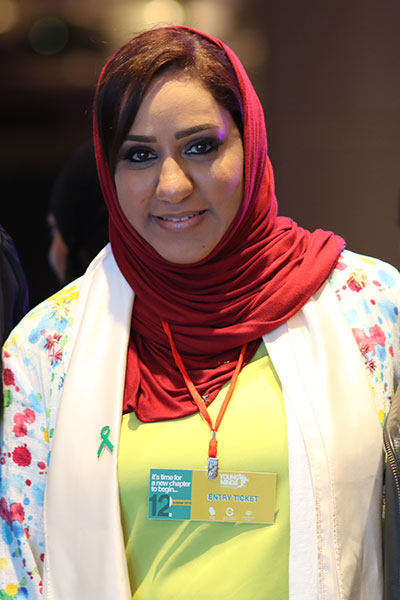
The Whispers of Serenity Clinic was founded by Her Highness Sayyida Basma Al Said, who is also a mental health consultant and psychotherapist with over 20 years of experience seeing and treating patients from a wide array of disorders. She is a pioneer in mental health issues awareness and is renowned for dealing the head on with taboo subjects in the Middle East such as abuse and eating disorders. Her experience ranges from group, family and couples therapy to art and drama therapy and meditation and she is a certified hypnotherapist, using the technique with some of her patients to aid them in their recovery. Sayyida Basma is a known philanthropist in Oman and is involved in several social initiatives and community services. One of these includes being a member of the child abuse committee in SQUH, which has given her deeper insight into dealing with abuse victims.
What drove you to open your practice here in the Sultanate and did you face any difficulties in when trying to establish it?
Her Highness Sayyida Basma Al Said (HHSB): It was always my dream to open a mental health wellness clinic here in Oman. My dream was complete when I founded the Whispers of Serenity Clinic, a first of its kind clinic in the Sultanate. However, when I established WOSC, I wanted it to be more than just a mental health wellness clinic. It is well documented that mental and physical well-being are directly interrelated, to a point where they can be considered one and the same. I therefore wanted WOSC to take a holistic approach to mental wellbeing. This is why I set up the clinic to also be a relaxation retreat; one that provides a variety of services including Detox Yoga, Laughter Yoga, and Relaxation Therapy and Meditation Sessions.
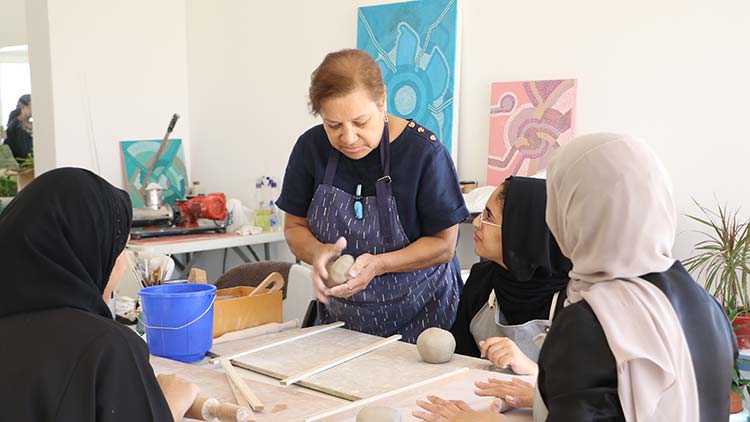
Unfortunately, setting up and establishing the clinic didn’t come easy. We had several obstacles to overcome, one of which was facing and challenging society’s view of mental health problems and the stigma surrounding it. But this was a challenge I was happy to take on. Helping others and raising mental health awareness has always been a matter close to my heart. In fact, this is the very reason why I chose to specialise in psychology in the first place. This was also the basis for the ‘Not Alone’ initiative we launched in 2014; a campaign that seeks to not only raise awareness about mental health, but also break down the barriers of stigma that surround it.
How big is your team and what sort of practitioners are they?
HHSB: Our team at WOSC consists of six psychologists, one group counsellor, two psychiatrists, two life coaches and one psychometrician. WOSC team are also a part of the ‘Not Alone’ initiative and have several volunteer members from the Oman royal family, other mental health institutions, ministries, students, and other professionals.
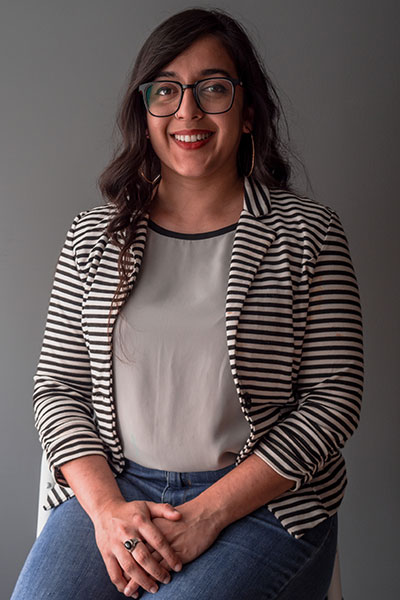
At the clinic, Her Highness Sayyida Basma Al Said works alongside a team of psychologists, group counsellor, psychiatrists, life coaches and psychometrician, one of whom is Tamsyn Pereira, a prominent Child and Young Adult Psychologist at the clinic. Tamsyn is a Master of Science holder in Child Development from University of Stirling, Scotland, UK, and is ADOS V2 trained for Autism assessment.
What are some of your most popular services?
HHSB: Since WOSC is the first mental health clinic in Oman with a multicultural diverse team of Psychologists, Psychiatrists, Psychometrician, Life coaches, and Counsellors, the flow of creative ideas is quite evident from our wide range of workshops as well as our very active social media channels. Our most prominent service is the one-to-one therapy for general mental health issues such as anxiety, depression, panic attacks and trauma. Our other services include – Marriage counselling, Child and Young Adult therapy, Outdoor Hike therapy, Hypnotherapy, Group counselling, Life coaching, Art and drama therapy, Teletherapy / Online therapy, Animal Assisted Therapy, and Psychometric testing. We also conduct several workshops on a regular basis. These include a virtual book club, puppet shows, virtual art competitions, yoga + meditation, movement/dance therapy, poetry workshops, laughter yoga, mindfulness sessions, face yoga, podcast club, and a WhatsApp therapy support group.
Can you give us some more insight into the ‘Not Alone’ initiative and any others you have done?
HHSB: Our Not Alone campaign was launched in November 2014 with an awareness video that was screened in VOX cinema. An exhibition was also held at the same time at the Muscat City Centre. From there onwards we have continued to host several events and initiatives under its name every couple of months. These include art competitions, walkathons, road shows and forums. We also hosted an anti-bullying campaign at various schools, created a platform where those who suffered from mental health issues could share their stories, and established a free mental health helpline service in Oman. More recently, given the current global situation and social distancing measures that are in place, we hosted a virtual webinar focused on the “Healing Aftermath” during the Covid19 pandemic. The webinar hosted a total of 32 Speakers (both local and international) over the course of the two-day event and was joined by over 350 participants from various countries such as Egypt, Kuwait, Bahrain, Germany, India, Iran, United
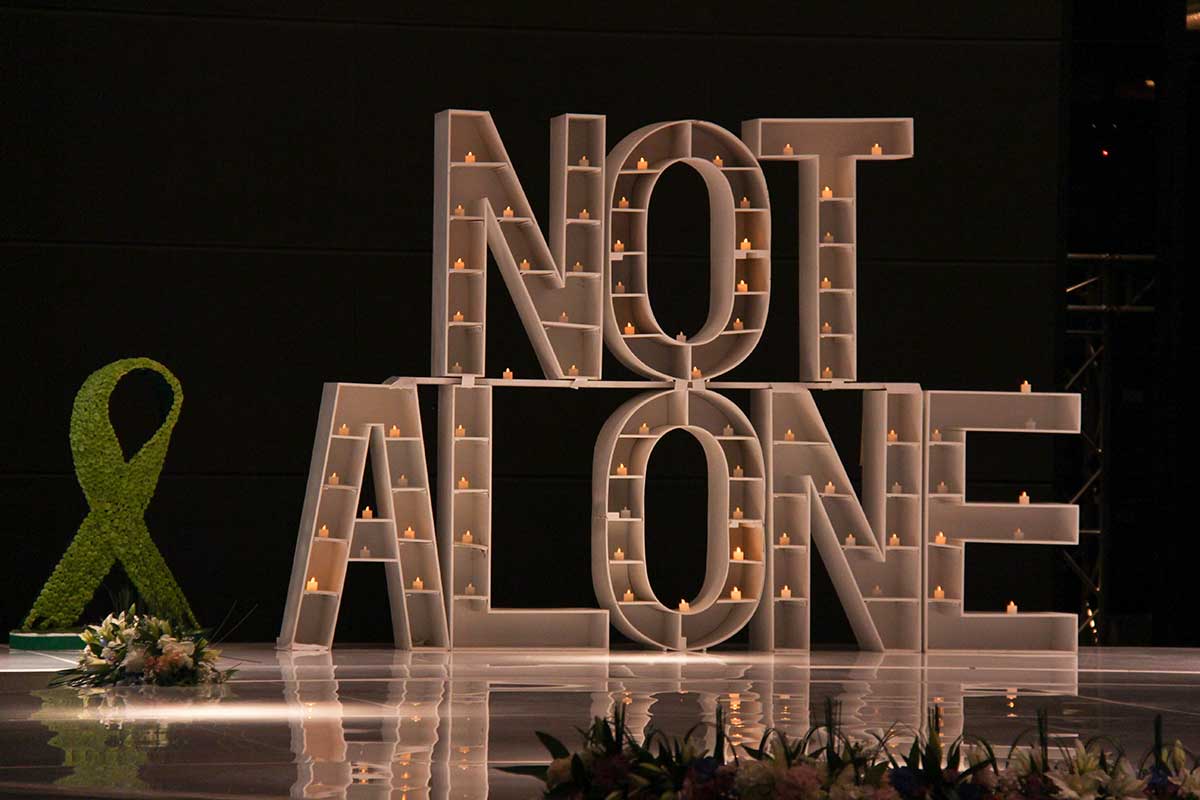
Kingdom, Philippines, Saudi Arabia, and Oman. Outside of the ‘Not Alone’ campaign we also launched an Arabic app called ‘Ziad and Zaina’, a game targeted towards children, to give them a better understanding about mental health issues and to help protect themselves from abuse. It covers everything from bullying and abuse to something as simple as not talking to strangers.
The current global situation has no doubt adversely affected the mental health and wellbeing of many people. What are the most common issues that you have witnessed amongst your patients and what advise do you have for others facing similar situations?
Tamsyn Pereira (TP): We have always seen clients with common anxiety and panic attacks, however, in the few weeks before the spread of the virus in Oman, we found an increasing number of people reaching out to us to better mentally prepare themselves for the pandemic and a possible lockdown. When the lockdown was imposed, we noticed that as a community the change shifted from fear, to that of loneliness, depression, and existential crisis. Over the last few months, considering the drastic news all around the world, we as a clinic, began to see ourselves not only handling cases in Oman, but also advising people in other countries facing similar mental health problems.
Our biggest piece of advice would be for people to realise that they are not alone in the issues they are facing, and their problems should never be minimised. We have a dedicated team that is always available to help, especially for those who might be facing financial difficulties during these tough times.

If someone was interested in physical or emotional healing but didn’t know where to start, what is your advice for them?
TP: I would say start by listening and learning. Practicing active listening is especially important, together with learning to respect others’ opinions. The online world has tons of resources that are easily accessible. Find resources that you can learn from and listen to views and opinions of individuals who have faced similar difficulties to the ones you are facing. A great tip is to also practice journaling simultaneously, which is writing or typing out your emotions using question prompts. This will help you organise your thoughts by putting them down on paper, so in the future, you can appreciate your own progressive emotional healing journey.
As a child psychologist, what advice do you have for first time parents?
TP: I believe first time parents should allow themselves to make mistakes without being too hard on themselves. Parents put a lot of expectations on themselves to appear perfect to their children. Showing your children that you’re capable of building resilience by making mistakes and more importantly admitting and accepting those mistakes, will help your child build empathy, learn resiliency, and simultaneously build a healthy trusting bond with you as well.
What should a child do in a situation wherein the parent doesn’t believe they need help?
TP: This is quite a common issue with children. It’s a difficult situation to be in, especially when they feel alone and mentally exhausted. If you’re in a similar situation, you could start by sitting your parents down for a conversation, while also sharing resources you’ve found explaining the situation you are in. If your parents are still not supportive of you getting the help you need, WOSC, along with many other clinics in the world, offer free therapy services to those in need. Please reach out to us and we can help you!
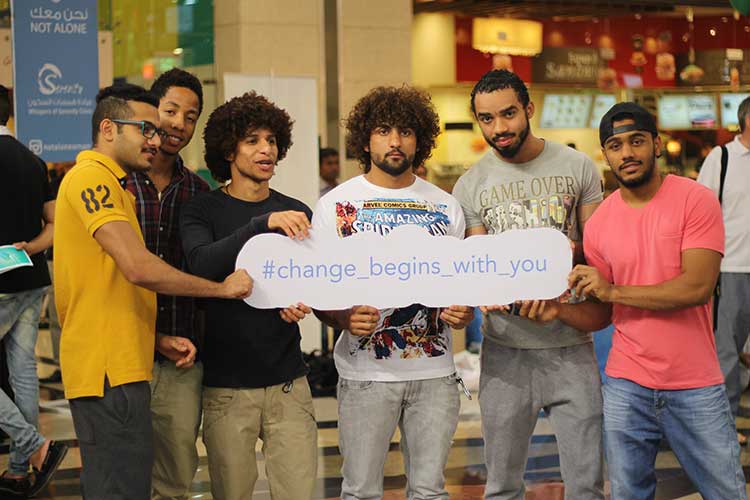
What is the most common symptom that people tend to not realise they suffer from or don’t seek help for? What advice do you have for them?
TP: Mental exhaustion slowly creeps up on us if we’re not paying attention to our self-care needs. In this dog eat dog world, we tend to get overwhelmed with work, a monotonous routine and commitments to friends and family, that we rarely take the time to care for our own physical and mental health needs. Speaking about mental health is considered taboo and that is why WOSC is taking a big step in the field of mental health by breaking down those barriers. It’s not necessary to seek therapy only if you have a diagnosis. We encourage everyone to notice that therapy is a form of emotional release by speaking to a mental health professional, someone who will offer mental health support and advice without any pre judgments and will push you to be the best version of yourself.
